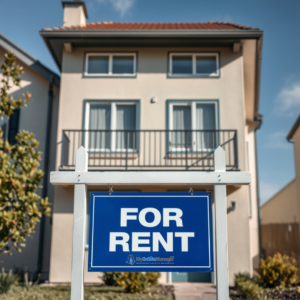For decades, the American Dream has been closely tied to the idea of homeownership — the white picket fence, the mortgage, and a piece of land to call your own. But in today’s economic and cultural climate, that dream is rapidly evolving. A growing number of Americans are choosing to rent long-term — not out of necessity alone, but often by choice. So, what’s behind this shift? Are people truly embracing a rental lifestyle, or are they being pushed out of the housing market?
According to an article published by GlobeSt.com, the answer lies somewhere in between.
Renting as a Lifestyle: The Allure of Flexibility and Convenience
Many renters today are not just priced out of the market — they’re opting to rent because it aligns better with their lifestyle. Rental communities increasingly offer luxury amenities, central locations, and a maintenance-free lifestyle that many find appealing.
David Moore, CEO of Knightvest Capital, a multifamily real estate firm, highlights that a notable portion of renters today — particularly among Millennials and Gen Z — see renting not as a stopgap but as a preferred long-term living solution. With the rise of “rent-by-choice” attitudes, some tenants are enjoying the convenience of renting, access to modern amenities, and the ability to move without the burden of selling property.
From resort-style pools and coworking spaces to dog parks and smart-home integrations, today’s rental units often rival or even exceed the comfort and appeal of owned homes, especially in urban areas.
Economic Pressures: A Reality Check on Homeownership
While some are choosing to rent, others are forced to. The U.S. housing market has grown increasingly out of reach for many Americans due to:
-
Soaring Home Prices: In 2022, the median home sale price in the U.S. was $442,600, pricing many buyers — especially first-timers — out of the market.
-
Rising Mortgage Rates: Monthly mortgage payments are up to 35% more expensive than average apartment rents, according to CBRE data.
-
Affordability Gaps: The gap between income growth and housing costs continues to widen. Even those with stable incomes may struggle with down payments, high property taxes, and closing costs.
-
Student Debt and Credit Barriers: Many younger adults carry significant student debt or have insufficient credit history to qualify for mortgages, further delaying their entry into homeownership.
Even among high-income households, a surprising trend has emerged: more affluent individuals are choosing to rent rather than buy, often citing the hassle of ownership, high maintenance costs, and a lack of quality inventory in the housing market.
Generational Perspectives: Who’s Renting and Why
Millennials and Gen Z
Younger Americans are increasingly embracing the “rent-first” lifestyle. They value flexibility, experiences over assets, and are more mobile — moving for job opportunities, travel, or lifestyle changes. Renting supports these priorities while helping them avoid the financial stress associated with owning a home.
Many in this demographic also watched their parents or older siblings struggle with the housing crisis of 2008 or deal with mortgage debt during volatile economic times. That memory lingers.
Empty Nesters and Boomers
Interestingly, it’s not just the younger generations. Some Baby Boomers and empty nesters are selling their homes and moving into upscale rentals to downsize, reduce responsibility, and gain access to urban amenities and vibrant communities.
Is This a Temporary Trend or the New Normal?
While economic factors may ease in the future — such as a drop in mortgage rates or more accessible homeownership programs — the long-term rental trend may have already gained too much momentum to reverse entirely. Lifestyle preferences have shifted. People are rethinking what it means to build wealth, achieve stability, and live comfortably.
The idea that renting is “throwing money away” is being challenged. For many, renting is a financially sound, emotionally freeing, and practically wise decision. Whether by necessity or choice, renting is no longer just a stepping stone — for millions, it’s the destination.
Final Thoughts
America’s housing story is changing. Homeownership may still be a dream for many, but the flexibility and affordability of renting have made it a legitimate, long-term option for households across all income levels. As we head into the future, real estate developers, policymakers, and property managers alike will need to consider this shift — not just in economic terms, but in the values and lifestyles of the people they serve.
Source: Do More Americans Want to Rent Long-Term, or Do They Not Have Other Choices?

